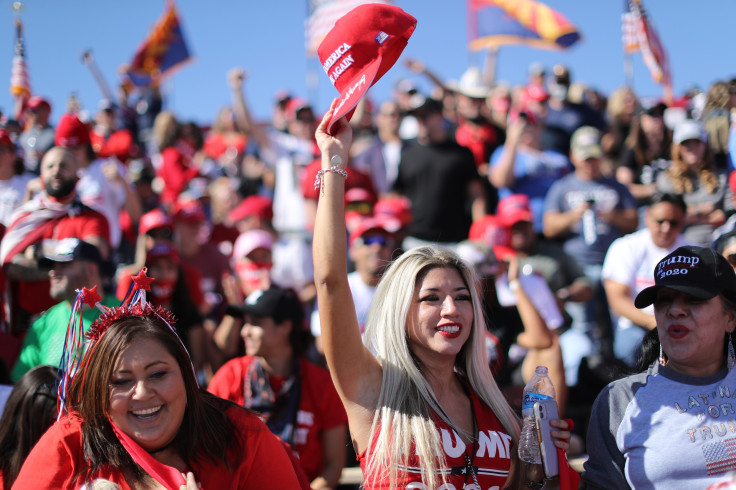
Donald Trump's presidential campaign managed to capture a larger share of the Latino vote than many anticipated. This shift surprised some political observers, particularly given Trump's controversial comments at his Madison Square Garden rally—which many thought would hurt him among the voting bloc— and his past remarks targeting immigrant communities. Yet, his campaign's nuanced approach appears to have resonated with key segments of the Latino electorate.
Latino versus American
Efrén Pérez, professor of political science and psychology, recently published an opinion column in The Hill, where he points out that Trump's success with Latino voters hinges on understanding the complexities of Latino identity in American politics.
"For more than 40 years now, Latinos have been steadfast Democrats—What is different today, however, is that many political observers have awakened to the flip side of that reality: that nearly one out of three Latinos genuinely identify as Republicans," he wrote.
"Although it may be surprising to some people, Latinos not only identify as an ethnic group but also as Americans," Peréz explained. "The more that Latinos prioritize American identity over their own ethnic identity, the more likely they are to think of themselves as Republican — a byproduct of polarization where this party is tightly and mentally associated with 'real' Americans."
Pérez's studies reveal that subtle cues, such as the American flag, activate associations with the Republican Party among Latinos. He warns, however, that a mismatch between messaging and identity can drive Latino voters away. "For example, if 27 percent of Latinos report prioritizing their American identity and a party reaches out to them as ethnics, this could trigger a defense mechanism whereby Latinos will self-identify with the party that better reflects their prioritized identity," he noted.
The Desire to Belong
Alejandro Flores, assistant professor at the University of Maryland, observes that Trump's campaign also used cultural gestures, such as Spanish-language ads and familiar Latino symbols, to create a sense of connection with Latino voters. "We've seen ads—featuring salsa music, MAGA hats, and more Spanish than we might have expected. In theory, it's supposed to make Latino voters feel seen and valued—and it does work to an extent," Flores said.
However, the Madison Square Garden rally, where Trump's comments about Puerto Ricans sparked controversy, illustrates the campaign's mixed messaging. "Some people saw Madison Square and said 'This is why I'm voting for Trump,' while others said, 'This is why I'm not voting for Trump,' the same message interpreted differently. Your interpretation depends on whether you feel connected to the group that is being attacked or not," Flores explained.
The "Good vs. Bad Immigrant" Framing
Flores also points to Trump's frequent emphasis on distinguishing "good" immigrants from "bad" ones. This framing appeals to certain Latino voters, especially those who identify strongly with American ideals and see themselves as distinct from newer immigrant groups. "Social psychology tells us that, in order to know who we are, we have to know who we are not. This is how we are different from other people. We like those differences."
But, Flores cautions that this approach can "alienate voters" who feel lumped into broader immigration stereotypes, especially those with strong ties to immigrant communities. "What Trump has been doing and also other Republicans, is to justify sometimes xenophobic rhetoric by saying, 'we are not talking about you, we are talking about "bad immigrants.'"
Democratic Outreach Falling Short?
Both experts agree that Trump's campaign underscored a long-standing gap in Democratic outreach to Latino voters. Pérez suggests that Democrats need to adjust their outreach to better align with Latinos' diverse identities and interests.
"Political candidates must reach out to Latinos in ways that acknowledge and affirm the identities that they themselves value most. This entails each party suspending its stereotypes about what kind of voters Latinos are and instead meeting these voters where they stand and accept how they see themselves."
Trump's surprising success with Latino voters highlights the powerful impact of targeted messaging and identity-based outreach. This moment offers both parties an opportunity—and a challenge—to demonstrate genuine alignment with the values and priorities of Latino voters, per Flores," The real challenge for both parties will be moving beyond symbolic gestures to sustained, substantive engagement."
© 2025 Latin Times. All rights reserved. Do not reproduce without permission.





